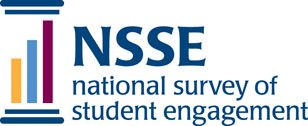Last modified: Thursday, November 17, 2011
Study time varies by college students' major, corresponds to faculty expectations, survey finds
FOR IMMEDIATE RELEASE
Nov. 17, 2011
BLOOMINGTON, Ind. -- Findings released today show that on average, full-time college students study 15 hours a week. However, study time differed by academic majors, with seniors in engineering averaging about 19 hours per week, while their peers in the social sciences and business averaged five fewer hours per week.
Faculty expectations for study time by field corresponded closely to what students reported, but there were exceptions. Social sciences faculty, for example, expected four more hours per week than the average social sciences senior reported. Students who devoted at least 20 hours per week to studying did not always attend class fully prepared.
These findings, released by the National Survey of Student Engagement (NSSE) from the IU Center for Postsecondary Research, raise questions about areas where a mismatch may exist between the work asked of students and what they believe necessary to succeed, and also whether faculty expectations for study time may need to be recalibrated.
The survey also documents a variety of student approaches to studying and learning.
Taking careful notes during class was widespread, but only two out of three students frequently reviewed their notes after class. Only half said they frequently outlined major topics and ideas from course materials or discussed effective study strategies with faculty or students. All of the effective learning strategies were positively related to other measures of student engagement such as academic challenge and active and collaborative learning.
"Our findings suggest that college and university faculty and academic leaders need to reflect on their expectations for academic work, particularly by discipline. They can also do more to help students become effective learners by explicitly teaching study skills and strategies," said Alexander C. McCormick, NSSE director and associate professor of education at Indiana University.
The report, Fostering Student Engagement Campuswide — Annual Results 2011, details results from a 2011 survey of 416,000 first-year students and seniors attending 673 U.S. colleges and universities. The report's theme illustrates the value of connecting student engagement results to specific campus programs and units to encourage greater collaboration to improve the quality of the undergraduate experience. "The central message is that providing opportunities, activities and environments supportive of learning and student success is a concern that should permeate the campus," McCormick said.
NSSE's annual survey provides diagnostic, comparative information about the prevalence of effective educational practices at participating colleges and universities. "NSSE results, linked as they are to important outcomes and benchmarked against other institutions' data, provide college and university faculty and leaders with invaluable guidance on where to invest time, effort and resources to improve student learning and other critical outcomes the nation expects from its higher education institutions," said Daniel F. Sullivan, president emeritus of St. Lawrence University.
Other noteworthy findings from the 2011 survey and its companion surveys, the Beginning College Survey of Student Engagement (BCSSE) and the Faculty Survey of Student Engagement (FSSE), include:
- About one in five entering students expected paying for college to be "very difficult," and those who expected financial difficulty also anticipated more trouble learning course material, managing time and interacting with faculty. These students also placed a higher value on the importance of getting help with school work and campus support services. "This finding suggests that given the economic downturn and associated financial stress that students face, staff in first-year student programs and faculty should ensure that students with financial need take full advantage of learning support services," said BCSSE project manager James S. Cole.
- Only seven out of 10 students frequently sought help when they did not understand course material.
- The majority of seniors (83 percent) discussed career plans with a faculty member or adviser, and 75 percent perceived substantial gains in work-related knowledge and skills.
- About half of seniors participated in an internship, practicum, field experience or clinical assignment. Participation rates differed by discipline, from a high of 71 percent for education majors to a low of 43 percent for business majors.
- First-generation college students (neither parent has a bachelor's degree) spent significantly less time preparing for class than students with at least one college-educated parent, yet they were more likely to use a variety of learning strategies, including taking careful notes during class, connecting learning to things they already know, and identifying key information from readings.
NSSE's Annual Results 2011 is sponsored by the Carnegie Foundation for the Advancement of Teaching.
Fostering Student Engagement Campuswide — Annual Results 2011 can be downloaded from the NSSE Web site (nsse.iub.edu) or it can be ordered for $20 from the National Survey of Student Engagement, Indiana University Center for Postsecondary Research, 1900 E. 10th St., Suite 419, Bloomington IN 47406-7512.

